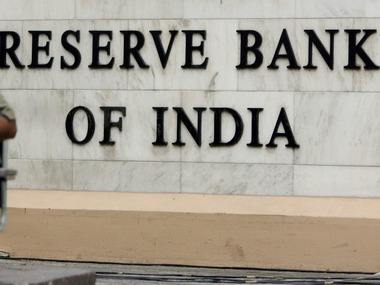SKS Microfinance shot up to a high of Rs 598.05 from Rs 343.15 in four trading days after the government released the draft Microfinance Bill. The dream run came to an end on Wednesday when the stock dropped 10 percent, hitting the lower circuit at Rs 529.35. The fall continued when it slipped to Rs 428.80 on Friday morning, but has since pulled back a bit and was trading at Rs 502.10 at 11 a.m.
Though the draft Microfinance Bill gives the Reserve Bank of India (RBI) regulatory control of microfinance institutions (MFI), what has caused the euphoria is that the Bill takes it outside the purview of state level intervention. The operations of SKS Microfinance were hit after the Andhra Pradesh government prevented it from deploying recovery agents for loan recovery. With the sector likely to be under RBI’s control as per the draft Bill, companies will again be able to deploy their recovery agents in the field. A series of suicide deaths by creditors resulted in the government putting a stop to the strong-arm tactics deployed by microfinance companies.
This resulted in loan recovery for SKS coming down to 10 percent. Andhra Pradesh accounted for a lion’s share of the company’s disbursal. Thus, the hope of its recovery agents has lifted hopes for the company.
But now it is becoming apparent that the draft Bill may not be a panacea for SKS’s future well-being. If expert views and the Andhra Pradesh government’s own point by point rebuttal of the Bill are considered, the final Bill will be a much diluted version of the draft.
The Andhra government, which is a Congress one and hence important in political calculations, has asked for a rethink on the Bill and at the same time is taking legal opinion on how the bill could interfere with certain constitutional provisions. Attempts by recovery agents to forcibly get money back from borrowers is an offence and provisions to deal with them are part of laws enacted by state governments.
PS Reddy, principal secretary, Andhra Pradesh, has gone on record to say: “Our understanding is that the existing RBI machinery, or the proposed (microfinance) ombudsman, may not be a solution and may not be adequate to look at ground level realities. I think that’s the fact which we need to discuss further.”
In an interview to CNBC, Usha Thorat, former deputy governor of the RBI, said: “It’s going to be a huge challenge because it relates to millions of borrowers for MFIs (microfinance institutions), groups and purposes for which loans are being given… So…ultimately (the Bill) has to be innovatively made.”
Andhra Pradesh, in its reply to the Bill, has rightly raised the point of not putting a ceiling on interest rates. MFIs are known to charge interest ranging from 24-50 percent. Though the Bill has not put a ceiling, it has put a cap on margins. This is refuted by the Andhra government, which points out that MFIs are charging 40 percent interest and still showing margins of only 6 percent, while their cost of funds is around 12 percent.
The state government has even contended that MFIs should not be called an extended arm of banks. “The lending practices, interest rates, and recovery practices of the banks and MFIs are radically different. The mere fact of drawing funds from the banking system cannot make them an extended arm of banks,” it said. A better way, it says, is to convert them to banks and operate under the banking regulations.
The draft Bill states that none of the activities of MFIs shall be categorised as ‘money lending’ and therefore, proposes to take them out of the purview of the money lenders’ regulation. In its reply, the government has quoted a former RBI governor who has said that “for-profit MFIs should be treated at par with money lenders and should not be subject to soft regulation as they are a bigger risk to the system than individual lenders who extend loans out of their own net worth”.
In other words, what the former governor was hinting at is that in the case of a default by clients, MFIs who are themselves leveraged and depend on bank funds can cause a domino effect on the system.
SKS Microfinance has a bank borrowing of Rs 2,700 crore on a net worth of Rs 1,781 crore. With Rs 1,400 crore deployed in Andhra Pradesh with barely enough recovery, it is only a matter of time when the banks come knocking on SKS Microfinance’s door.


)




)
)
)
)
)
)
)
)